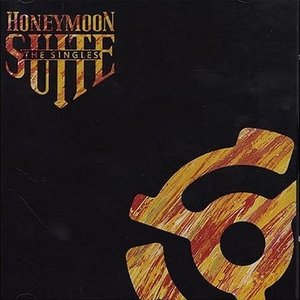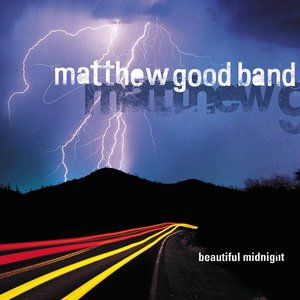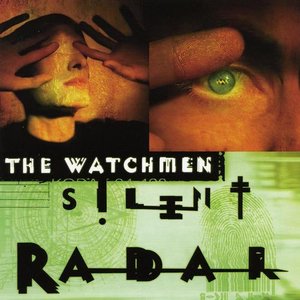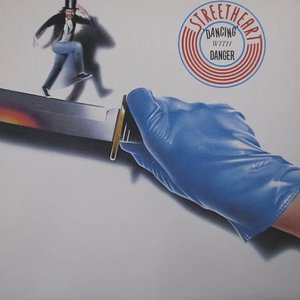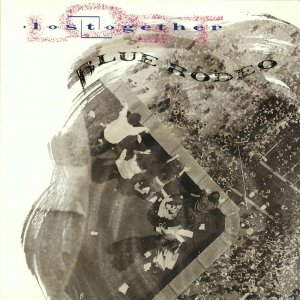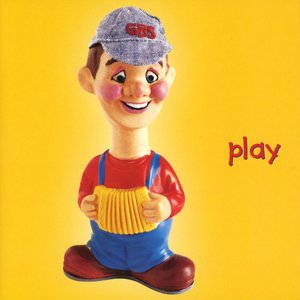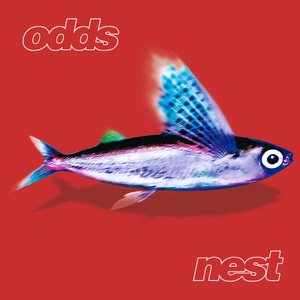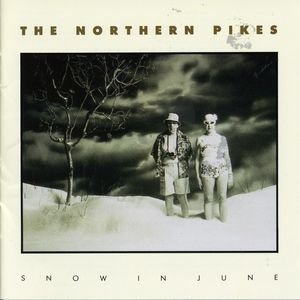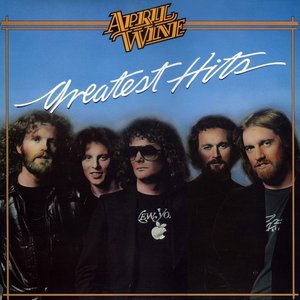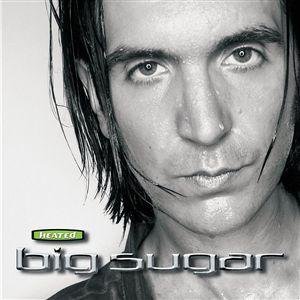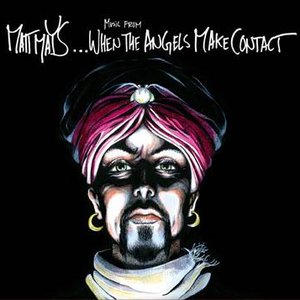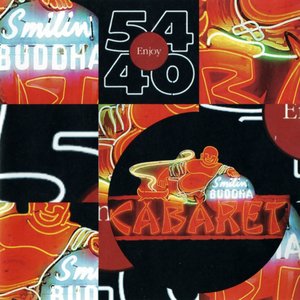Wiki
-
Release Date
20 November 1990
-
Length
10 tracks
Singer/songwriter guitarist Jim Cuddy, who with Greg Keelor forms the backbone of the Toronto quintet Blue Rodeo, laughs as he recalls how the band's collaboration with producer Pete Anderson began. "When we first went into the studio, I asked him what he thought of our last album, Diamond Mine. And he said, 'Man, I tried, but I just couldn't get through it!'"
The creative dialogue between two somewhat different approaches - Anderson's and that of a group who grew from being Queen Street's favorite bar band to one of the nation's best-selling acts - has proven to be a fruitful one indeed. Recorded in the spring of 1990, Casino is the follow-up to two multi-award-winning, double-platinum successes - 1987's dark-horse favorite Outskirts and 1988's Diamond Mine.
Choosing Anderson, who is well known for his work with Dwight Yoakam, Michelle Shocked and others, was a simple process. Says Cuddy, "We wanted to make this record with somebody who really knew how to record guitars, and how to make a record that had the best qualities of the '60s and '70s. We listened to the records that we liked - Neil Young, the Beatles - and tried to pick out of them some kind of direction. There's an enormous effect that these songs have on you from the very first second you hear them. The singing is so 'in your face', the guitars are really loud - these were the production values we were after. The next step was putting a wish list of producers together, and we came up with Pete."
Casino was recorded at Los Angeles' Capitol Studios, the hallowed halls of the '60s where Frank Sinatra cut "My Way" and the Beach Boys recorded all their classic material. The studio was also the site for the remastering of all the Beatles records for America. "The room that we recorded in was about as high tech as the '50s spaceship in 'Lost in Space'", observes Cuddy, "but the boards have a very warm sound. In contrast, we mixed in a room with all the toys, so our studio work was a combination of really old stuff - old compressors, old mics - and the new. A composite of all the best things."
Whereas Diamond Mine was an ambitious, lengthy effort recorded in an old Toronto theatre, Casino is a deliberately focused album, bearing the hallmarks of classic pop in sound and scope. Says Cuddy, "On Diamond Mine, what we were going for was vibe, directed toward spaciousness and mood, and the playing was all subservient to that. But with Casino, we wanted to make a real pop record, condensed, distilled and intact."
"The first night we went down to Los Angeles," recalls Cuddy, "Greg and I took acoustic guitars over to Pete's, and we arranged all the songs. Some of his suggestions were pretty radical - taking choruses and switching them to verses, for example." Adds Keelor: "That night was a pretty drastic one. Pete had a really clear idea of what he wanted to do. As a songwriter, there's always a certain paranoid response to other people's suggestions, but it started to make sense on the drive home." Their work with Anderson, Keelor and Cuddy conclude, produced a fusion of the band's expansiveness and experimentation, and the producer's love of conciseness.
Given two singer-songwriters with distinct lyrical and vocal styles, each of whom have their champions amongst the legions of Blue Rodeo fans, previous producers have tended to favour one over the other. Anderson, on the other hand, did not. "For some reason there was no friction on this record," says Cuddy. "There was no sense of one person being favoured more over the other, which always sounds so childish to even mention, but it's so much a part of the creative process."
"In retrospect it's a bit embarrassing, the things you thought were so important. But we went into this record knowing that we were going to sing a lot together and work a lot together, and there was a greater merger of ideas. We wanted to get back into the principle of being a single unit, Greg and I." Adds Keelor: "The fact that the vocals on this album sound so great is partly that they were recorded beautifully, but also because we were singing together so much more. We worked hard at getting our two voices matched up well."
Blue Rodeo's musical trademarks are as much the result of the band's other three members as they are of its two principals. As Cuddy is quick to point out, "We are not great guitarists. Greg only began playing when he was twenty, so in terms of the muso guitar world, he started when he was ancient. But Bobby is definitely a musician, and whenever we make a record, the producers say, 'Bazil's the best musician in the band'. Mark is somebody who has devoted his life to playing drums, and knows them inside out." Indeed, an integral part of the band's sound has always been the inventive keyboard abilities (some would say genius) of BOB WISEMAN, who is a producer and solo artist in his own right, and whose critically acclaimed debut album, "In Her Dream", was released in Canada and the United States in 1990. Bassist BAZIL DONOVAN's long experience in both rock and country dovetails neatly with Blue Rodeo's variety of musical influences, and drummer MARK FRENCH (who replaced original sticksman Cleave Anderson in 1989) rounds out the fivesome.
For a band who never sought to be musical perfectionists, Blue Rodeo has a strange reputation, particularly south of the border. As Jim Cuddy recounts, "In the US they say, 'Well, you're obviously players! And that always makes us laugh, because there were a lot of times Pete joked that he had to leave the room because he couldn't STAND the way we were playing guitar. To him, there's only one way to play the guitar, but to us, there's also an expressive way to play, and that's what we like. Players are guys that learn the techniques of playing and know how to do it exactly. Neil Young is not a player by those standards, but he plays guitar the way we'd like to … I think what people mean when they talk about players is that there's an honesty to the music. It's not doctored in order to create an impression that's anything other than, 'This is what it will sound like when these five guys play live'. We use the honest approach, warts and all."
"Til I Am Myself Again", the first single to be taken from Casino, is supported with a video clip directed by Toronto's Marsha Herle, and was shot in the seedy, century-old Winchester Hotel in that city. A concise, guitar-driven pop song, it sets the tone for the album with its blend of despair and, eventually, resolve. "I've never lived in a hotel in a small town, but the despair in that song is real, even if the setting isn't," says Cuddy. "I don't think Casino is as cynical as Diamond Mine." Keelor is typically succinct, adding, "Diamond Mine wasn't a party record, whereas Casino could be."
A song which will be familiar to many of Blue Rodeo's live audiences is the wry "What Am I Doing Here"; the ferris wheel in the song even reappears as a ghostly presence on the album cover. Relates Keelor, "That song is about an infamous gig we did at the Erie County Fair just outside Buffalo. We'd been on the road far too long, and we were playing on a dirt racetrack, last on the bill after seven high school groups in a battle of the bands contest. By then there was hardly anyone left - maybe 200 high school students who were more interested in drinking and throwing up than they were in watching us. I'd look around at the rest of the band and every one of them was just playing away, staring at the ferris wheel going around and around, and it sure seemed like a good metaphor for us; a circle going nowhere!"
While there is little overt political commentary on Casino, the band (particularly Keelor and Wiseman) has never shied away from social observation. Their work for many causes has included benefits for anti-nuclear and disarmament groups and, this year, a trip to the Stein Valley Festival in British Columbia where the country's biggest stars performed in aid of the endangered West Coast rainforest. The band has also spoken out in favour of native rights, with Keelor and Cuddy recently appeared at a native arts organization's arts festival near Oka, Quebec, site of recent land claims protests.
As Keelor told Music Express in a recent interview, "You have to feel inspired about something to write a song: you can't just manufacture one. We are concerned with native rights, the environment, disarmament, so we love playing benefits for those causes. It's good for us, because we don't have time to go out and throw tomatoes at political leaders!" However, Keelor cautioned in the same interview, "I don't understand rock stars coming on as role models in a moralistic way. My rock stars are those who encourage you to turn on, tune out and steal daddy's car. Those are still my heroes, and that's how I feel about rock n' roll. But now rock n' roll has become trivialized. It's on every commercial." R
ecent highlights of Blue Rodeo's career have been well documented in the press, both in Canada and abroad; a 1989 German tour with Edie Brickell and New Bohemians; an appearance that summer at the Montreux Jazz Festival; strong UK reviews for their recorded output and live London performances; two successive Juno Awards (1989 and 1990) as Canadian Band of the Year, and a nationally televised performance at those awards in 1989 with Robbie Robertson and the Band. This year, Blue Rodeo was seen briefly on the silver screen as Meryl Streep's backing band (in her guise as an actress-cum-country singer) in the film, Postcards From The Edge. While group members are the first to crack jokes about the length of their movie debut, what is most significant about the appearance is that it was at Streep's request: she became a fan after her chauffeur played a Blue Rodeo tape during Streep's rides back and forth to the set from her Connecticut home. And, unlike most musical performances in film, which are mimed and lip-synched, both Streep and Blue Rodeo played live.
As awards and critical plaudits continue to come the band's way here in Canada, Blue Rodeo is set to take another swing at the world, and particularly the United States, where Casino will be the first release on the new Atlantic affiliate label, East/West America. A national Canadian tour begins in January and is slated to cover all ten provinces and Labrador. Added to recent appearances in both northern territories, the band is now one of the country's best-travelled; having notched up well over 250 gigs a year since their debut February 14, 1985 at Toronto's legendary Horseshoe, they may be the best live draw in Canadian rock.
As Jim Cuddy told Music Express, success in other territories, while it appears ever closer, is not a holy grail. "I don't lie awake thinking, 'Oh God, I want a million-selling record' … I see our music as more personal than top-of-the-charts music, so I see small advances as big advances." In the meantime, Casino looks like a determined new stop in the Blue Rodeo direction.
Album descriptions on Last.fm are editable by everyone. Feel free to contribute!
All user-contributed text on this page is available under the Creative Commons Attribution-ShareAlike License; additional terms may apply.

